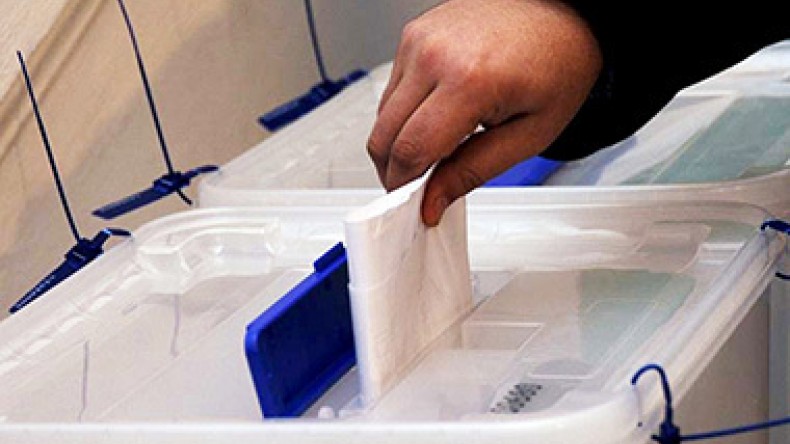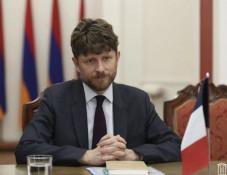
Report: OSCE sends 380 observers to parliamentary elections in Azerbaijan because of violations concerns
Following an invitation from the authorities of the Republic of Azerbaijan to observe the 1 November 2015 parliamentary elections, and in accordance with its mandate, the OSCE Office for Democratic Institutions and Human Rights (OSCE/ODIHR) undertook a Needs Assessment Mission (NAM) to Azerbaijan from 12 to 14 August. Based on the findings of this report, the OSCE/ODIHR NAM recommends the deployment of an election observation mission for these elections. In addition to a core team of experts, the OSCE/ODIHR NAM recommends the secondment of 30 long-term observers and 350 shortterm observers from OSCE participating States in order to cover the vote count and tabulation. The report, which presents the results of the assessment mission, published on the OSCE website.
According to the report, NAM considered previous OSCE/ODIHR recommendations and that some technical amendments made to election-related legislation remain unaddressed, including the formula for composing election commissions, procedures for candidate registration, and mechanisms for handling complaints and appeals. The authorities did not respond to offers by the OSCE/ODIHR to discuss the report’s findings and recommendations on presidential elections in 2013.
The authors highlight that by law, chairpersons of all commissions are nominees of the parliamentary majority which in practice, gives pro-government forces control of all commissions, undermining trust in the impartiality of the election administration.
The reports reads that the official campaign period lasts 22 days, ending 24 hours before election day. A number of OSCE/ODIHR NAM interlocutors stated that the country faces significant challenges with respect to the exercise of fundamental freedoms in the pre-election period, pointing to systematic harassment and criminal prosecution of those who express critical views of the government. Representatives of some parties informed the OSCE/ODIHR NAM that they often face difficulties in obtaining authorization for public meetings and, when approved, that they are often confined to venues that are not easily accessible. It was also stated that meetings held in private premises are often dispersed.
Several opposition parties informed the NAM that they face difficulties in securing office space due to pressure placed on leaseholders by the authorities. Ali Kerimli, the leader of the Azerbaijan Popular Front Party, remains unable to travel abroad having not been issued a passport since 2005. All political parties and movements met with by the OSCE/ODIHR NAM, nonetheless, stated their intention to participate in the upcoming elections,
Concerns were raised about possible misuse of state resources and an increase in intimidation of voters and potential candidates in the run-up to the elections. While a range of media outlets operate in the country, several OSCE/ODIHR NAM interlocutors stated that the public has limited access to pluralistic views and impartial information. Several opposition parties stated that their views are rarely presented, particularly outside of the campaign period. While it is possible to purchase political advertising, most parties stated that they will not make use of this option due to high costs. Foreign broadcasters are not permitted to access national frequencies.
‘’The media environment is negatively impacted by ongoing detentions, criminal prosecutions, physical attacks, and other forms of pressure on journalists,’’ the report reads. It is also highlights that defamation remains a criminal offence by the Constitution, with a penalty of up to two years in prison, while Article 106 of the Constitution and Article 323 of the Criminal Code prohibit insulting the honor and dignity of the president. A number of media outlets have closed in recent years including the Baku office of Radio Free Europe/Radio Liberty, while the independent newspaper Azadliq faces large fines from several pending defamation lawsuits. 7 The ECtHR has made several rulings on unlawful restrictions on journalists’ freedom of assembly and their ill-treatment whilst in detention.
A number of civil society and opposition parties met with by the OSCE/ODIHR NAM expressed a lack of confidence in the independence of electoral dispute resolution bodies. ’’Although several civil society organizations expressed an intention to observe the upcoming elections, many stated that a lack of financial resources would likely restrict their activities, particularly as a result of changes to NGO legislation that limit the possibility to receive foreign funding. The State Council for NGOs has provided funding to the Citizen Education Public Union to monitor the upcoming elections. The Election Monitoring and Democracy Studies Centre (EMDSC) has significant experience in conducting independent and professional citizen observation but remains unregistered by the authorities. EMDSC chairperson, was arrested on grounds of alleged illegal entrepreneurship,’’ the authors say mentioning that Anar Mammadli was sentenced to five-and-a-half years in prison after the presidential elections in 2013.
It is also noted that each potential candidate must submit 450 signatures of registered voters to their respective ConEC. Opposition parties and several other OSCE/ODIHR NAM interlocutors expressed concerns about potential pressure on voters to refrain from signing in support of their candidates. Concerns were also voiced about the fairness of the candidate registration process.
There are no legal requirements to promote women candidates, although most parties informed the OSCE/ODIHR of voluntary policies. Women are under-represented in public office, holding some 16% of seats in the outgoing parliament, and 1 of the 42 ministerial posts.
Related:
Turan: Azerbaijani authorities close OSCE office in Baku and provoke tightening of relations with West
ODIHR: Azerbaijani government should show political will to eliminate violations during election
Newsfeed
Videos






























